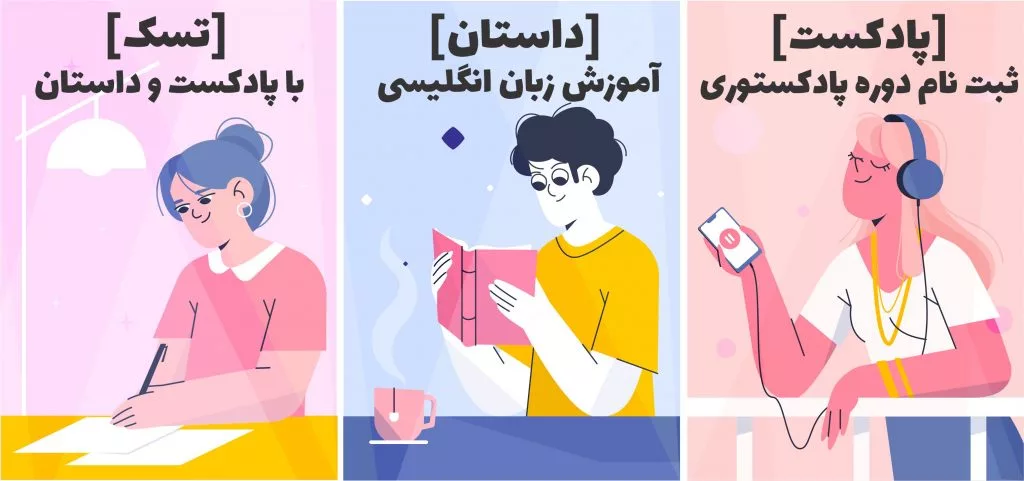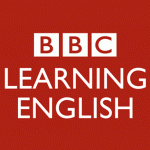پادکست انگلیسی BBC – نازک نارنجی
در پادکست انگلیسی BBC – نازک نارنجی درباره افراد نازک نارنجی صحبت میشه. کلمه snowflake در سالهای اخیر معنای جدیدی به خود گرفته است. این روزها از آن به عنوان توهین استفاده می شود. این کلمه برای انتقاد از افراد یا گروههایی استفاده می شود که به نظر می رسد خیلی راحت از چیزهایی که دیگران می گویند ناراحت می شوند.
سوال پادکست انگلیسی BBC – نازک نارنجی :
In which year was snowflake one of Collins Dictionary’s words of the year? Was it…
a) 1996
b) 2006
c) 2016
به پادکست خوب گوش کن تا جواب رو پیدا کنی.
اگر می خوای گوش دادن به پادکست تا حد امکان برات ساده و کارآمد باشه مراحل زیر را دنبال کن:
هر روز به پادکست گوش کن. وقتی براش یه وقت ثابت در روز در نظر بگیری برات تبدیل به عادت میشه و این عادت هرروز پیشرفت میکنه.
پادکستی رو پیدا کن که موضوعش برات جالب باشه. وقتی از خود موضوع لذت ببری یادگیری هم برات لذتبخش میشه.
به پادکستی گوش کن که transcript یا متن داره. این بهت کمک می کنه تا کلمات و عبارات جدید رو به سرعت در متن پیدا کنی و ساختار انواع مختلف جمله رو خوب یاد بگیری.
پس از گوش دادن به پادکست با متن، در مرحله بعدی سعی کن بدون نگاه کردن به متن این کار رو انجام بدی. این کار مهارت شنیداری رو تقویت می کنه و کمک می کنه تا انگلیسی زبانان بومی را راحت تر درک کنی، حتی اگر خیلی سریع صحبت کنن.
اگه به پادکست انگلیسی گوش کردی و نتونستی کامل متوجه اش بشی، ناامید نشو. پادکست هایESL -English as Second Language بیشماری وجود دارن که برای سطوح مختلف، از ابتدایی تا پیشرفته طراحی شدن. مطمئنا هر روز می تونین یه پادکست مناسب با سطح خودت پیدا کنی.
فراموش نکن که هرچی بیشتر تمرین کنی در اون مهارت رشد میکنی! به قول انگلیسی ها: Practice makes perfect
واژگان کلیدی پادکست انگلیسی BBC - نازک نارنجی
| معنی به فارسی | معنی به انگلیسی | واژه |
| توهین آمیز | (something) rude, insulting and makes people feel hurt and upset | offensive |
| از چیزی ناراحت یا عصبانی شدن | get upset or angry by something thought to be rude or insulting | take offence |
| استناد به چیزی | person who gets offended too easily and unnecessarily | snowflake |
| به دنبال توجیهی برای چیزی باشید | use (something) to support your point or explain your action | invoke |
| چیزی که عرف جامعه می گوید توهین آمیز و تکان دهنده است | challenge, highlight and look for justification for something | call something out |
| تابو | something that society says is offensive and shocking | taboo |
BBC 6 minute English -Snowflakes and taking offence

برای دانلود پادکست روی سه نقطه سمت راست کلیک و گزینه Download را انتخاب کنید.
متن پادکست انگلیسی BBC - نازک نارنجی
Neil
Hello. Welcome to 6 Minute English, I'm Neil.
Rob
And I'm Rob.
Neil
Rob, would you say that were a snowflake?
Rob
Wow, I can't believe you said that, that's so offensive. How could you be so rude?
Neil
So I guess that's a yes then? Sorry, I only asked.
Rob
Don't worry, I wasn't really upset, I just wanted to demonstrate the meaning of the word. The word snowflake has taken on a new meaning in recent years. These days it's used as an insult. It's used to criticise people or groups that are seen to be very easily offended or upset by things that others say.
Neil
There is usually a political side to it too, isn't there?
Rob
Yes, people who use the word snowflake tend to be from the political right and they usually use it about those on the political left, particularly millennials - young, socially aware adults.
Neil
Well we'll explore this topic in more detail shortly, but first a quiz question. In which year was snowflake one of Collins Dictionary's words of the year? Was it…
a) 1996
b) 2006
c) 2016
Rob
Well, we said it's quite a recent word so I'm going for c) 2016.
Neil
Well, we'll find out if you're right later on in the programme. The topic of offence is a very complicated one. First what do we mean by offence Rob?
Rob
Thanks for that. That is a really difficult question. Something that is offensive is rude, insulting and makes people feel hurt and upset. What's difficult about it though is that we don't all find the same things offensive. Some people can be deliberately offensive and some people may be offensive without meaning to be.
Neil
Also, different people respond to offence in different ways - some accept it as the price of free speech and some try to stop the people they think are offensive from saying the things they do.
Rob
These terms come up quite a lot in discussions about equality, race, religion and of course, politics.
Neil
The topic was discussed in detail in the BBC Radio programme Sweet Reason. Evan Davis presented the programme and here is the first part of his summary of the discussion. What does he say is the reason some people talk about offence?
Evan Davis
First, on occasion, people probably do invoke offence when really they just have a political disagreement and on occasion groups that suffer discrimination or exclusion perhaps find it exhilarating or uniting to call out that discrimination.
Neil
He says that some people take offence when it's just a political disagreement. He says they invoke offence.
Rob
If you invoke something it means that you use it to support your point or explain your action. So to invoke offence is to say that we are acting this way because we are offended by what you have said, although the offence may only be a political difference rather than something truly offensive.
Neil
Davis goes on to say that groups that do suffer from discrimination may get some feelings of unity when they call out discrimination. They feel more together when they publicise and highlight the discrimination they have experienced. Even though some offence that is taken may not be genuine, that doesn't mean people don't have a right to be offended. Here's Evan Davis again.
Evan Davis
Where the so-called snowflakes surely have a point is this, societies are entitled to make certain things taboo and the millennials use of the word offensive is simply designed to say some views are not just wrong they are in a special category of wrong.
Rob
His point here is that societies can decide that certain things are taboo. In this context something that is taboo is something that is regarded by society as being shocking and offensive and that it is OK for people to be offended by these things.
Neil
And I think the point he makes is a good one. The word snowflake is usually used as an insult - but some people may feel proud to be a snowflake because it means they are standing up for a particular standard, they have a level of decency and social responsibility that is higher than that of those who are calling them snowflakes.
Rob
Well I hope we haven't caused any offence today. Before we review the vocabulary, can we have the answer to today's question Neil?
Neil
Of course, I asked in which year was snowflake one of Collins Dictionary's words of the year? Was it…
a) 1996
b) 2006
c) 2016
Rob
And I said c) 2016. It's got to be right!
Neil
Well, do you want to hear the story? Interestingly the term was coined in 1996 in the book Fight Club, but it was in 2016 that it was one of the dictionary's words of the year. Now let's review our words of the day. First there is offence.
Rob
People can take offence and be offended by something that is offensive. Something that is offensive could be rude, insulting and shocking. It might take the form of humiliation or discrimination against a person or group.
Neil
The term snowflake is a word used by some people to talk about other people who they think get offended too easily and unnecessarily. They don't want to change their language or ideas just because snowflakes get upset. Then we had the word invoke. If you invoke something you use it as a reason to explain your actions and feelings
Rob
To call something out is to challenge it, to highlight it and look for justification.
Neil
And finally we have taboo. Something that society says is offensive and shocking. So there we have it. What do you think Rob of this topic.
Rob
Well it is a very difficult subject, particularly when it comes to politics, religion and society. Free speech is good but at times, particularly on social media, I think can be unnecessarily unpleasant.
Neil
Well, try not to be offended but it is time for us to leave you for this programme. Do join us next time. Remember you can find us on Instagram, Facebook, Twitter, YouTube and of course our website bbclearningenglish.com. And of course, we have a new app which you can find on our website. It's free and it's brilliant isn't it Rob?
Rob
Absolutely!
Neil
See you soon, bye.
Rob
Bye!
امیدوارم از پادکست انگلیسی BBC - نازک نارنجی لذت برده باشید.
گوش دادن به پادکست روش خوبی برای تقویت مهارت شنیداری و هم چنین یادگرفتن کلمات در بستر یک موضوع خاصه که این به تقویت مهارت مکالمه انگلیسی نیز کمک زیادی می کنه.
اگه تو هم از اون آدمهایی هستی که از گوش دادن به پادکست لذت می بره برات یه خبر خوب دارم! آموزشگاه زبان انگلیسی 24talk یه دوره طراحی کرده مبتنی بر پادکست و داستان کوتاه به اسم "پادکستوری - Podcastory". این دوره سعی کرده یادگیری زبان انگلیسی رو مناسب با نیاز و سطح زبان آموز به یه فرایند بسیار مفرح، موثر، سریع و کم هزینه تبدیل کنه.
همین الان می تونی با کلیک روی عکس زیر و ثبت نام در دوره ی آموزش زبان انگلیسی با پادکست و داستان ۲۴talk اولین و مهم ترین قدم رو برای یادگیری زبان انگلیسی برداری. وقت رو از دست نده!
دوره پادکستوری آکادمی مجازی 24talk
برای شنیدن دیگر پادکست ها، به بخش پادکست در مرکز آموزش رایگان مراجعه نمایید.








